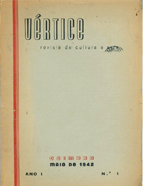

................................
The departure of the aforementioned historians was offset by the arrival of new contributors. This change resulted in greater attention being paid to 19th-century Portuguese history, particularly through articles published by Flausino Torres and Victor de Sá. Continuing the interest in 19th-century Portugal that had begun in the 1940s, a significant group of scholars began to form who, according to Flausino Torres, should come together to produce an indispensable collective work on the contemporary Portuguese period (no. 209, Feb. 1961, 110). This renewed interest in contemporary history occurred in a context of significant changes in Portuguese society, a fact that was not overlooked by Victor de Sá, who saw it in the light of the “imperative derived from the crisis of civic consciousness that we are becoming aware of” (nos. 234-6, Mar.-May 1963, 238). It was therefore important to understand the social structure in which communist intellectuals intended to intervene (José Neves, Comunismo e Nacionalismo..., 2010, 329).
In conclusion, the historiographical importance of Vértice should be highlighted in a context in which historians linked to the opposition to the Estado Novo were, as a rule, excluded from state educational and research institutions. Alongside other journals and publishing projects, Vértice became one of the privileged spaces for the presentation of the ideas and works of many of these historians who contributed to the emergence and consolidation of new theoretical, methodological and conceptual proposals, many of which were later rejected, sometimes by the authors themselves. Nevertheless, it is significant that many of the historians who contributed to Vértice went on to take up teaching positions in higher education, particularly after the 25 April revolution, including Joel Serrão, António José Saraiva, Borges de Macedo, Luís de Albuquerque, Victor de Sá, João Medina and António Hespanha, among others.
This work is financed by national funds through FCT - Foundation for Science and Technology, I.P, in the scope of the projects UIDB/04311/2020 and UIDP/04311/2020.
